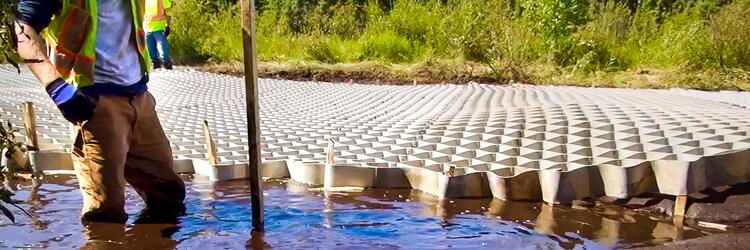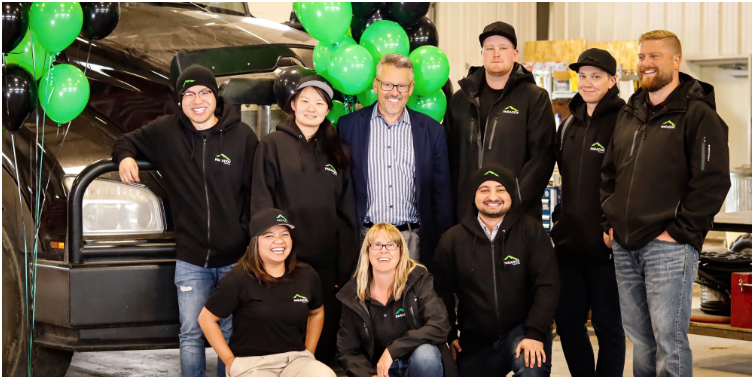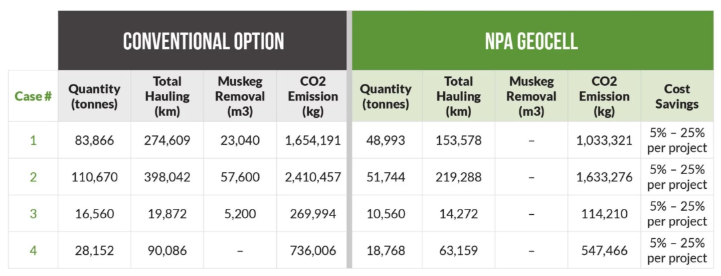This article was originally published on blog.paradoxaccess.com
By Marc Breault
“Every experience is a paradox in that it means to be absolute, and yet is relative; in that it somehow always goes beyond itself and yet never escapes itself.” — T.S. Eliot
The Oxford English Dictionary defines a paradox (par· a· dox) as “a seemingly absurd or self-contradictory statement or proposition that when investigated or explained may prove to be well founded or true.”
When I founded Paradox Access Solutions nearly 15 years ago, it was my mission to build an access solutions company that would accomplish three key goals:
- Employees would be more than just a number.
- The words “environmental” and “roadbuilder” would make sense together.
- Inventing and adopting (what seemed to be) outrageous technology solutions that would be embraced by the industry’s forward-thinking innovators, eventually trickling through to even the most conservative businesses and setting new standards for technology across our industry.
Jump to today, and we consider this mission accomplished. But how did we do it, and how exactly does achieving these goals makes Paradox so paradoxical?
Let’s explore.
Becoming More Than a Number
For a large part of my career, I was immersed in sales and marketing for a major beverage company. I was employee #163729 and, although I loved my job, I knew that I would forever and always be just a number — whether I would have continued to work at that particular company or another of its kind.
When we got Paradox off the ground, it was imperative to me that we build a human company. And, in order to create and support a productive workplace culture with a clear understanding of and ability to deliver exceptional customer service, we knew we’d need to operate differently than the large companies.
We were a family-run business that grew quickly. And to adapt to the steady growth in revenue and employees, we adopted a family-style approach to leadership that still works for us today.
Internally and externally, it’s about open communication, building each other up, and living by the ideology that quality usurps quantity every step of the way.
Speaking of steps, another major factor that contributes to our paradoxical Paradox is our focus on shrinking the industry’s environmental footprint.
Reducing Our Environmental Footprint
For most of us, roads are long stretches of pavement that serpentine through the countryside and keep our cities organized in neat grids. Roads get us from Point A to Point B and rarely do we think about roads having a positive environmental angle.
So, it’s not surprising that the term ‘environmental road-builder’ may be perceived as a paradox as well.
Here’s how it works.
A conventional roadbuilding company typically requires 25,000 tons of crushed stone per kilometer of road being built. With geosynthetic technology — such as NPA geocells — you can realize at least 25% (and as much as 50%) savings on aggregate infill volume.
Such advancements in geosynthetic technologies also make it possible to reduce pavement thickness by up to 50% compared to conventional roadbuilding methods. Furthermore, with NPA geocells, full-depth subgrade preparation usually isn’t necessary and soil replacement is minimized or eliminated.
All that, plus the ability to use locally available materials (inferior materials like sand, recycled asphalt, and recycled concrete) to save time and costs on trucking infill across excessive distances.
The result? Reduced carbon emissions thanks to shorter traffic disruptions, lower overhead, and less time on site in general.
And the carbon savings that come from applying NPA geocells goes beyond shrinking the carbon footprints for roads alone. This technology is being used to enhance efficiencies in rail line repair, slope stabilization, and ground reinforcement projects nationwide.
These accomplishments are no roll of the dice. They’re the result of hard work and commitment to provide the market with an improved solution to an old problem. Keeping my initial goals top-of-mind throughout the entire process — a process that spanned many years — is what ultimately fuelled Paradox’s ability to create and distribute a design+build engineered end product.
Our matting division barely leaves a footprint, either, offering temporary access solutions that are used, washed, and removed without impacting the environment in a negative way.
And while all these above-the-surface accomplishments are great, we don’t always know what’s beneath the surface. We have to be prepared for extreme circumstances — say, walking on water. It’s these unforeseen situations that make our technology in itself a Paradox, too — using “solid ground” solutions to effectively create solid ground out of liquid matter.
Walking on Water
Let’s think about our feet on the ground and the lengths we will sometimes go, to get on solid ground.
In any given place on earth, the composition and compactness of the ground vary wildly. In and between municipalities, asphalt is laid atop the infrastructure that keeps urban areas clean and connected. In rural areas, where there’s less infrastructure, gravel and dirt roads are prone to deterioration. In remote areas, ground conditions can be so wet, unstable, or impassable — sometimes it’s a challenge to even build a temporary or permanent road in the first place.
In Canada, muskeg or ‘skeg (as our operators affectionately refer to it) is a challenge. It’s a challenge we chose to accept — and conquer.
Paradox has literally built roads on water (ahem) soft soil for some of the largest energy companies in the world. With a lifespan of 20 years, these roads are rock solid.
How do we do it? We use Tough Cell® — a reliable base/subbase soil reinforcement solution known generically as “NPA geocell” technology. Tough Cell changes the strength modulus properties of high and low-quality granular materials. And perhaps more importantly, it reduces project costs, future maintenance, and substantially lowers the carbon footprint of road construction.
At Paradox, we’re always learning, growing, and adapting to the world around us. Visit https://www.paradoxaccess.com to learn more
Share This:





 CDN NEWS |
CDN NEWS |  US NEWS
US NEWS 


































Canada’s Advantage as the World’s Demand for Plastic Continues to Grow